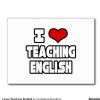|
ESL Forum:
Techniques and methods
in Language Teaching
Games, activities
and teaching ideas
Grammar and
Linguistics
Teaching material
Concerning
worksheets
Concerning
powerpoints
Concerning online
exercises
Make suggestions,
report errors
Ask for help
Message board
|
ESL forum >
Ask for help > The "i" sound and the "ea" sound.
The "i" sound and the "ea" sound.
|

S�rgio(o)

|
The "i" sound and the "ea" sound.
|
|
The "i" sound and the "ea" sound.
When do we read: "ea" sound when we have got an "i"? As for example: pig
When do we read: "i" sound. When we have got an "i", too? As for example: white
when do we read: "i" sound when we have got a "Y"? As for example: fly
when do we read: "ea" sound when we have got a "y", too? For example: Myth
Is there any rule? Do you know a site where we can find the explanation in english and/or in portuguese? Thanks in advance. Please send me the answer to my mail box. |
21 Aug 2009
|
|
|
|

anitarobi

|
|
I �m afraid as reading goes, rules are - shaky! There are more exemptions to rules than actual rules. I know I loved the fact that Spanish has some basic reading rules and that �s it (unless we talk about dialects), but I don �t think I can help you with English on that point....
They do say English is a silly language...
|
21 Aug 2009
|
|
|

Spagman63

|
You are pronouncing the short i in pig as a long e. This is typical of hispanic speakers. The confusion is because you are not making the correct English sound. The word pig is called a CVC (Consonant Vowel Consonant)and ALWAYS has a short vowel sound for the vowel in the middle. Pig is not peag. The sound of long i as in white is read when there is a final e after i_ (like, bike, kite etc.) or igh after a consonant (fight, might. light). We also read the final y as a long i when it is in a monosyllabic word (my. try. fly). I hope it helps.
|
21 Aug 2009
|
|
|

Spagman63

|
English is silly because it has been corrupted by many other languages. If it was pure it would be much easier.
|
21 Aug 2009
|
|
|

monicap_87

|
|
Spagman you should read a bit more about linguistics... there is no such thing as �pure languages �. ALL languages have been �mixed � with others in a higher or lower scale.
|
21 Aug 2009
|
|
|

Spagman63

|
Mnicap,
You should read my post better.
I said �If it was pure it would be much easier �. I NEVER said it IS pure.
|
21 Aug 2009
|
|
|

**********

|
|
Dear members, S�rgio was sent a private mail earlier and will be helped privately, as he requested. Thank you. My best regards. |
21 Aug 2009
|
|
|

Tere-arg

|
Perhaps you should devote some time to the study of phonetics.
It is not that simple.
As it was said before, there are rules, but there are many exceptions as well.
When in doubt about the pronunciation of some word, you always have the pronunciation dictionaries online, some include Am and Br English.
|
21 Aug 2009
|
|
|